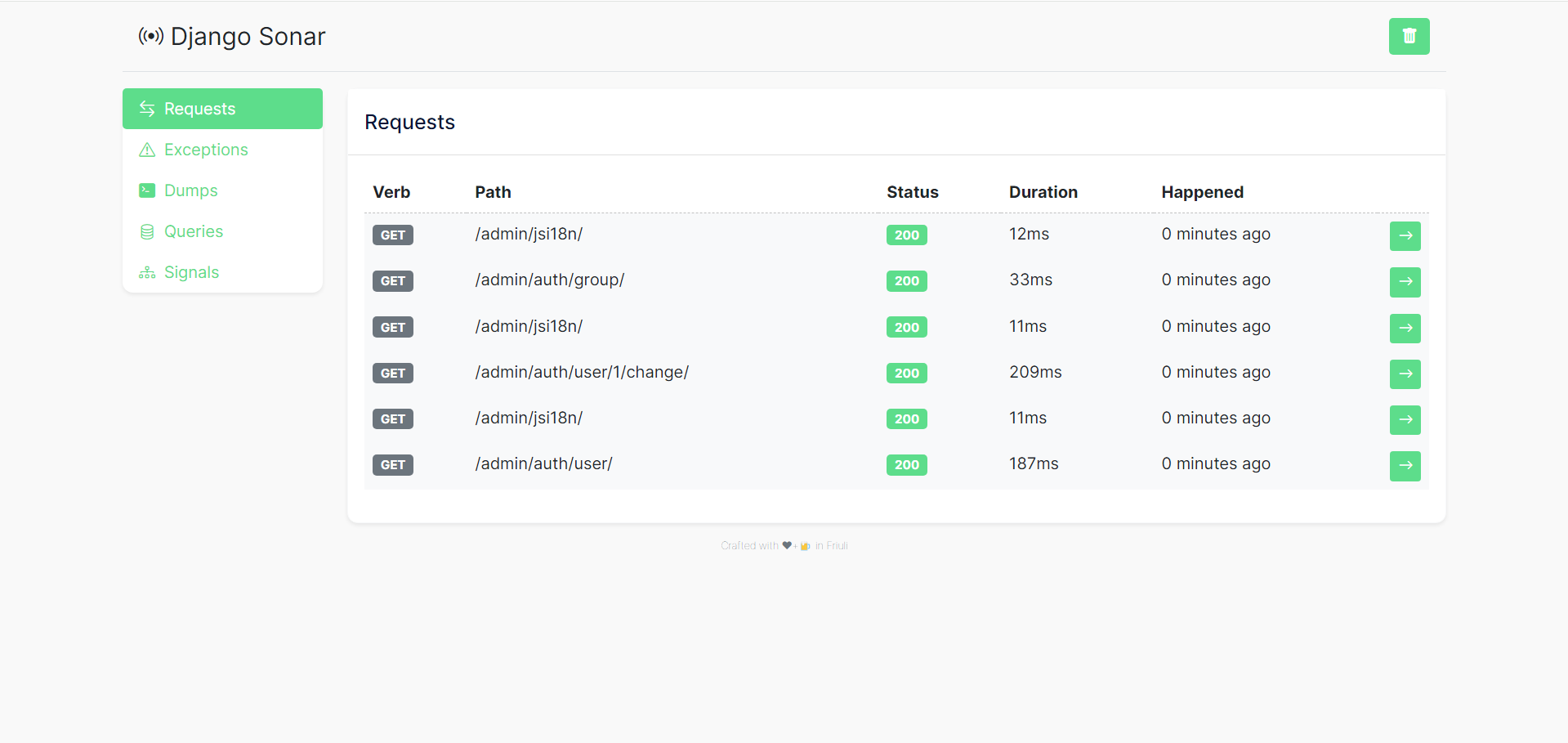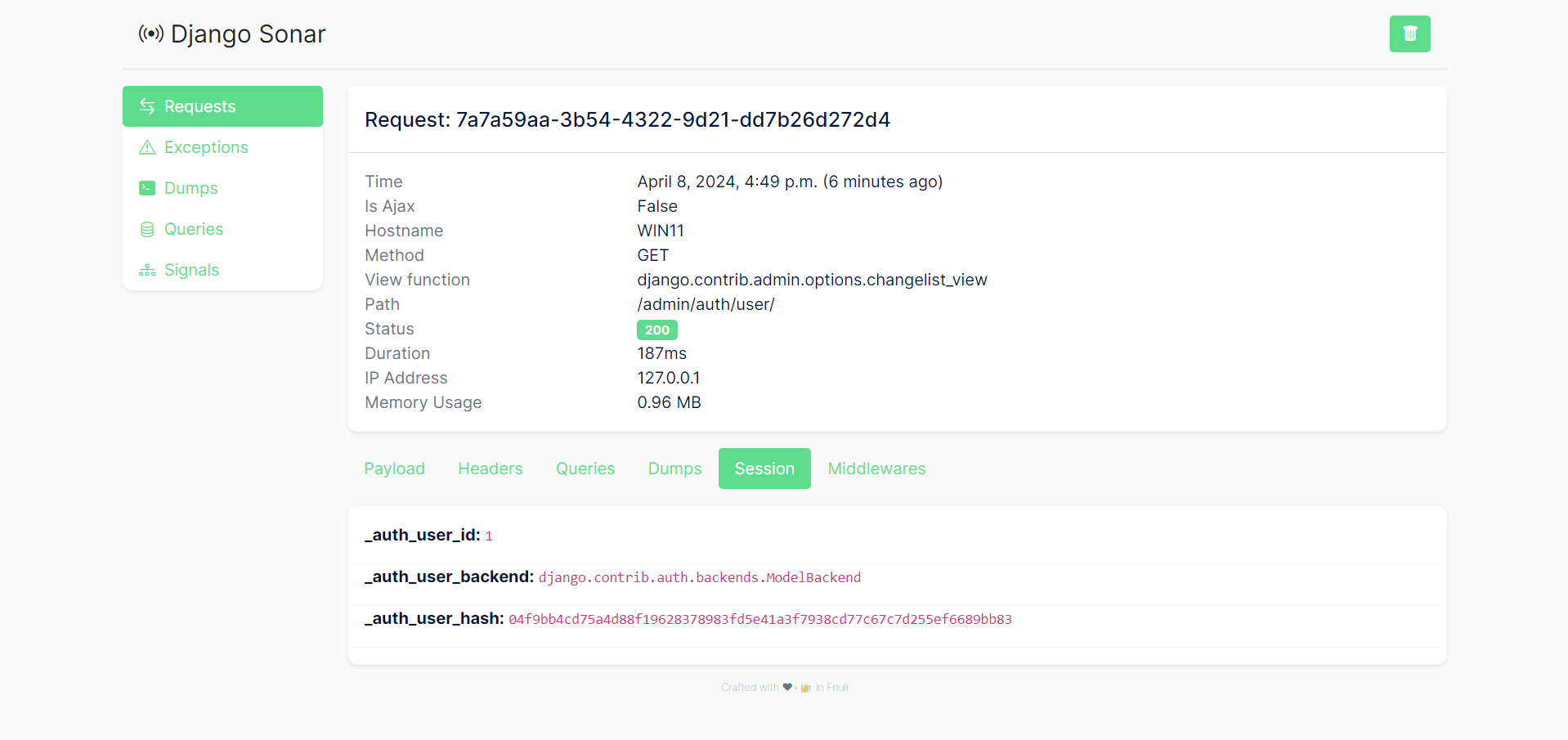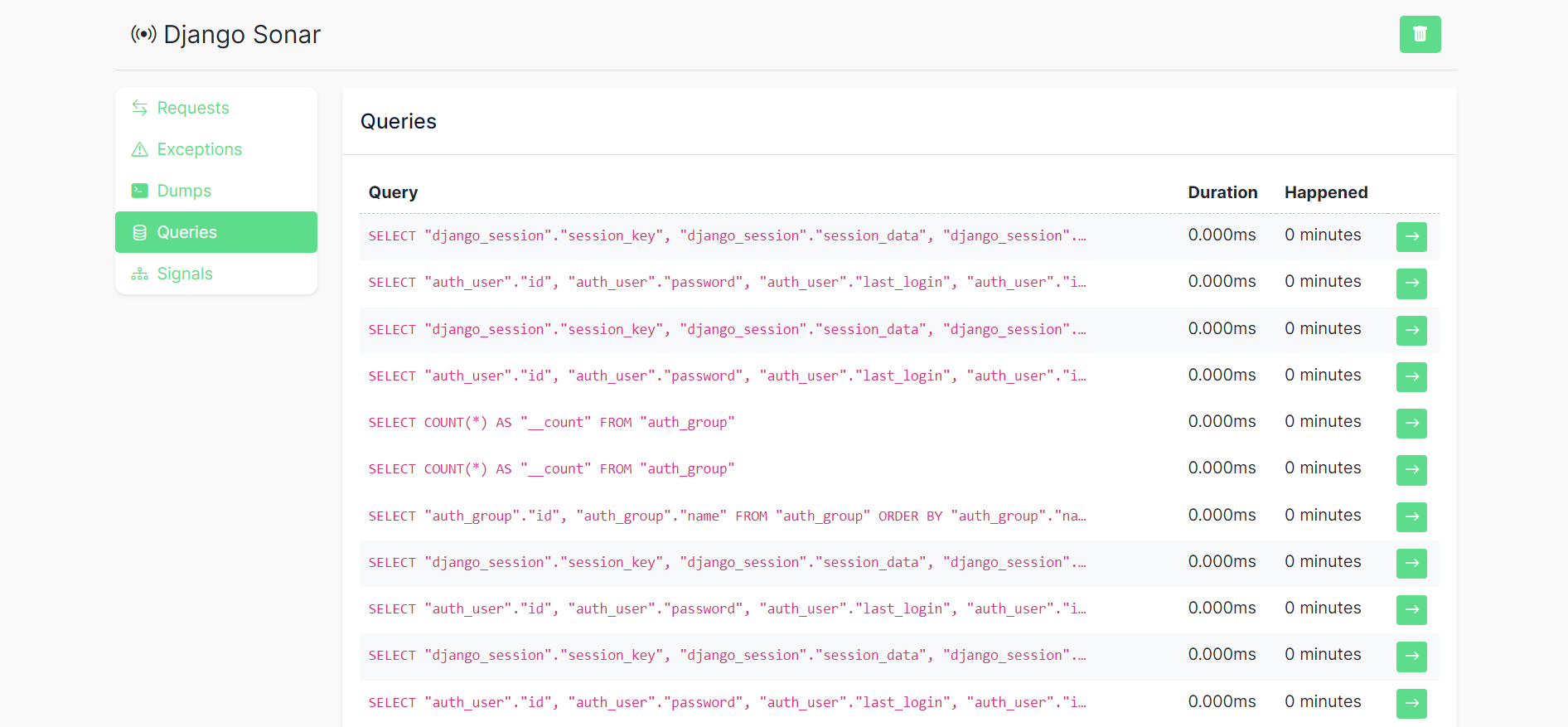
Django-Sonar is becoming a pivotal tool for debugging and introspection tailored for Django applications, inspired by the Laravel Telescope's functionality.
It aims to address the gap felt by developers transitioning from Laravel to Django, missing the robust debugging capabilities Laravel Telescope offered.
What is Django-Sonar?
Django-Sonar is an advanced debugging tool for Django applications, aimed at offering deep insights into various operational aspects such as requests, exceptions, and database queries.
It's designed to enhance the debugging process by providing a detailed and dynamic overview of application performance and issues, thereby streamlining the identification and resolution of bugs.
Inspired by the Laravel Telescope, Django-Sonar brings a similar level of debugging prowess to Django, leveraging technologies like Django itself, Bootstrap 5, and htmx to create a reactive and user-friendly interface for developers.
Key Features
Here are some of the key features of Django-Sonar:
Dynamic Lists: Automatically updating lists including requests, exceptions, queries, dumps, and more.
Request Insights: Detailed view of request payloads, authentication details, session variables, and headers.
Historical Data Management: Enables the review and clearance of historical data to maintain efficiency.
User-Friendly Interface: A simple, reactive UI that makes navigation and operation straightforward.
Excited to dive deeper into the world of Python programming? Look no further than my latest ebook, "Python Tricks - A Collection of Tips and Techniques".
Get the eBook
Inside, you'll discover a plethora of Python secrets that will guide you through a journey of learning how to write cleaner, faster, and more Pythonic code. Whether it's mastering data structures, understanding the nuances of object-oriented programming, or uncovering Python's hidden features, this ebook has something for everyone.
Installation
Installation is done with the standard package installation:
pip install django-sonarThen, add the application to the list of INSTALLED_APPS:
INSTALLED_APPS = [
...
'django_sonar',
...
]
You will also need to add the application URLs to the main urls.py file:
urlpatterns = [
...
path('sonar/', include('django_sonar.urls')),
...
]
To avoid collecting too much data/noise, it is advisable to configure some exclusions in the settings.py file:
DJANGO_SONAR = {
'excludes': [
STATIC_URL,
MEDIA_URL,
'/sonar/',
'/admin/',
'/__reload__/',
],
}In this example, all HTTP requests targeting static files, uploads, the Sonar dashboard, Django admin panels, and the browser reload library are being excluded. Feel free to adjust to your needs.
To enable the data collection, you need to add a new middleware in the settings.py file:
MIDDLEWARE = [
...
'django_sonar.middlewares.requests.RequestsMiddleware',
...
]
Finally, run the migrations to prepare the data collection tables:
python manage.py migrateUsage
To view the dashboard, navigate to the /sonar/ URL in your browser. The interface is straightforward:
Example of Requests:
 Sonar Requests
Sonar Requests
Clicking the link to access the request details:
 Sonar Request Details
Sonar Request Details
Example of Queries:
 Sonar Queries
Sonar Queries
Note: For both these examples the /admin/ exclusion was disabled. Also, make sure that a URL that you define with a variable in the exclusions is filled in, if not then you will end up excluding all requests because that URL will be ''. In the exclusions settings above, if you have not defined the MEDIA_URL, then that will be empty and you will exclude all requests.
DjangoSonar can be used in production environments to monitor historical request data, but it's crucial to regularly clear this data and disable the feature post-debugging to avoid accumulating excessive data.
Use DjangoSonar cautiously in production to prevent data overload.
Access is limited to authenticated superusers; any other user type attempting access will be redirected to an error page or the DjangoSonar login page, depending on their authentication status.
Dumping extra data
If needed you can use sonar() in your code to dump extra data for analysis:
from django_sonar.utils import sonar
sonar('something')
Use Cases
This tool is particularly helpful for:
In-depth Debugging: Gain comprehensive insights into requests, exceptions, and more for troubleshooting.
Performance Optimization: Identify slow queries and performance bottlenecks.
Security Analysis: Review request payloads and headers to enhance security.
Conclusion
Django-Sonar can be an indispensable tool for Django developers, offering powerful debugging capabilities that were previously missing.
With its user-friendly interface and comprehensive feature set, it aids in not only resolving issues more efficiently but also in understanding the inner workings of Django applications better.
Whether you're in development or production, Django-Sonar can significantly enhance your debugging process, making it a must-have in your development toolkit.
Article originally published at: https://developer-service.blog/django-sonar-the-essential-debugging-tool-for-django/